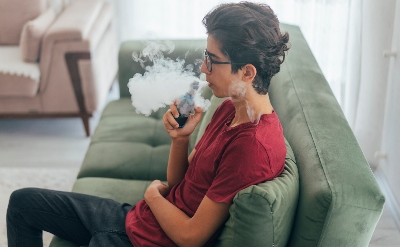Users of e-cigarettes are more likely to have asthma, and those e-cigarette users with asthma are at increased risk of experiencing exacerbations, according to recent research from the American Thoracic Society meeting.
“Our findings suggest that e-cigarette use is a modifiable risk factor for asthma to be considered in the primary care of youth and young adults,” Theresa To, PhD, of The Hospital for Sick Children in Toronto, Ontario, Canada, stated in a press release.

To and colleagues evaluated data from the cross-sectional Canadian Community Health Survey between 2015 and 2018, identifying 17,190 matched individuals 12 years and over who responded to the survey. The survey respondents were matched to five individuals in a control group who also used e-cigarettes based on age, gender, location, local health unit, body mass index (BMI), smoking history, education, and stress levels.
Overall, 16.7% of respondents used e-cigarettes within 30 days, and there was an increased odds ratio (OR) for individuals who used e-cigarettes and self-reported asthma (OR = 1.19; 95% CI, 1.05-1.34). There was an 19% higher likelihood of having asthma among users of e-cigarettes after adjusting for potential confounders (95% CI, 1.05-1.35). Higher likelihoods of having asthma were also seen in current smokers (20%; 95% CI, 1.02-1.41) and former smokers (33%; 95% CI, 1.05-1.69) after adjusting for potential confounders, but individuals who reported they never smoked did not have a significantly higher likelihood of having asthma. Individuals in the survey who used e-cigarettes and had asthma were 29% more likely to experience an asthma exacerbation within the last year (95% CO, 1.02-1.63), the researchers said.
A higher percentage of e-cigarette users also reported they had “fair to poor mental health” (15%) compared with non-users (7%), Dr. To noted, with e-cigarette users having 60% higher odds of “self-reported high levels of life stress” than non-users. “While vaping may not cause stress, it appears that vape cravings may be triggered by stress and anxiety, making it harder for the e-cigarette user to quit. This may be particularly relevant during the pandemic when stress and anxiety are highly prevalent,” she explained.
“To curtail the adverse health effects of vaping we should raise the awareness of the potential harmful health effects of vaping, and develop and implement evidence-based strategies to prevent and reduce e-cigarette use, especially in youth,” Dr. To said in the release. “We should also provide means and support to help those who currently vape to quit.”
